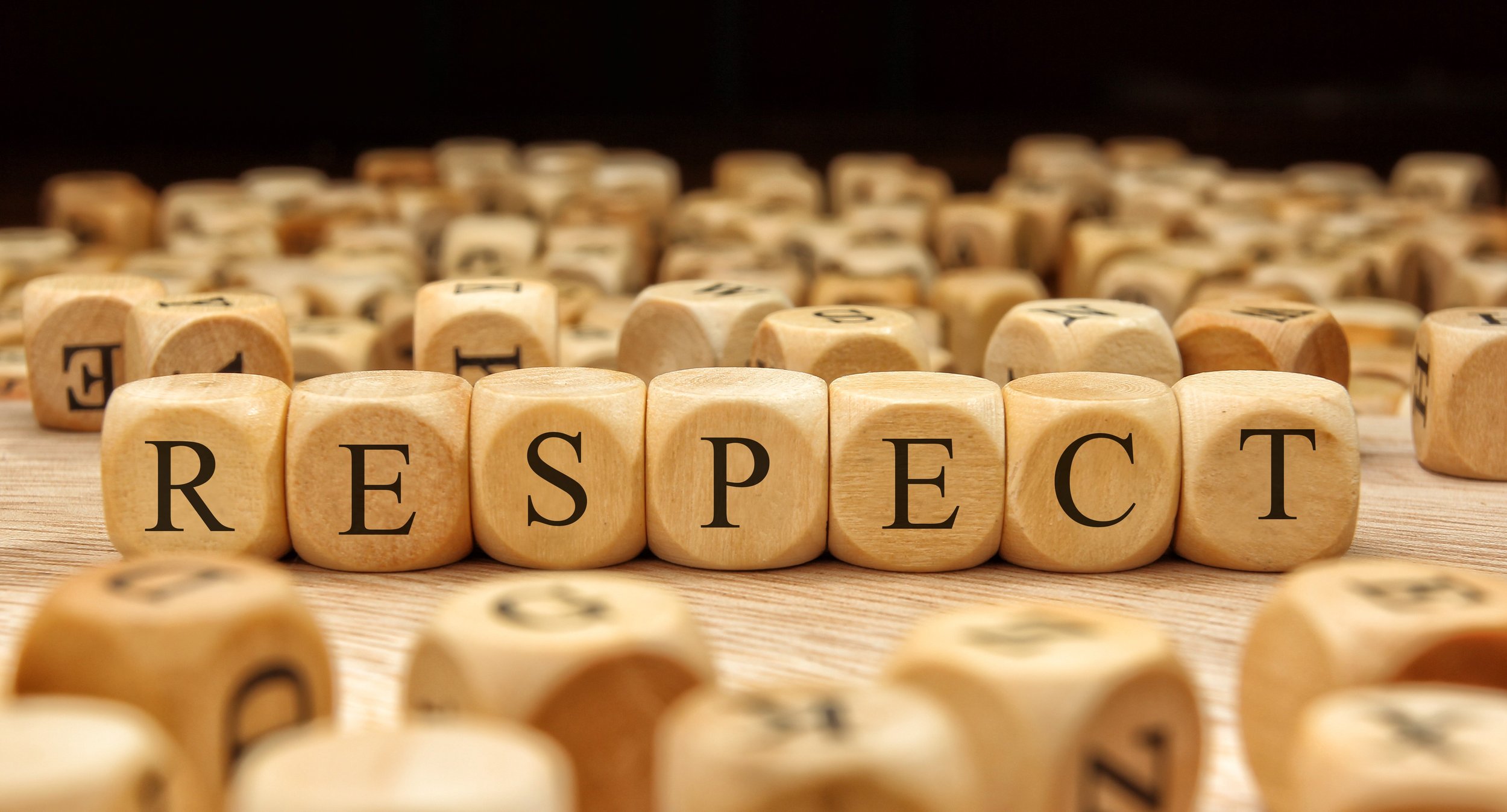Respect - is there a universal definition?
Respect is always simply about acknowledging and valuing others with consideration and without judgement.
What is respect?
I always use a particular 3-part definition to define workplace respect, but of course respect can be interpreted in different ways. Respect also comes with cultural nuances that can make interpretation ambiguous or imprecise. So is there a universal definition? I thought I might spend some time revisiting the research and thinking about the many definitions.
Here are 3 definitions that offer slightly differing perspectives:
The Ethics Centre
Respect (lite) is in play when being polite, considerate, and mindful of another person. It can also be demanded from another as a mark of deference to their rank, seniority, experience or standing in the world.
Respect (full) calls on each and every one of us to respect the intrinsic dignity of all other people. If something is intrinsic to us, it is essential to our being and cannot be earned. - How do you define Respect? - Ethics Explainer by The Ethics CentreWikipedia
Respect, also called esteem, is a positive feeling or action shown towards someone or something considered important or held in high esteem or regard. It conveys a sense of admiration for good or valuable qualities. It is also the process of honoring someone by exhibiting care, concern, or consideration for their needs or feelings.
Respect - WikipediaExploring your mind
Respect is an attitude that develops through mature and mutually enriching interpersonal relationships. Moreover, respect is the attitude of accepting others’ differences; you need respect in order to coexist with others without conflict.
To respect someone is to put aside our differences. It helps us avoid judging others for their individual choices and opinions.
To respect someone is to be aware of a person’s individuality, and not to demand that they change their opinions or behaviors.
What Is Respect? - Exploring your mind
All good definitions.
Next I looked at cultural considerations and lost an hour or 2 happily googling global workplace cultural respect, I particularly liked these 2 links: 10 Ways Workplace Culture Differs Around the World - Glassdoor Blog and How Corporate Cultures Differ Around the World (hbr.org)
I also played around for a while researching individual cultures for their explanations of respect and thought I might include a few but essentially it all comes down to differences in customs, punctuality, formality, gestures, body language and interpretations of compliance/subservience/obedience.
Finally I find myself back at the definition that I use, I really can’t move past this one:
Respect includes acknowledging, listening to, being truthful to and accepting someone’s individuality and idiosyncrasies
Giving someone respect is similar to valuing them and their thoughts, feelings, etc.
Taking someone's feelings, needs, thoughts, ideas, wishes and preferences into consideration. Taking all of these seriously and giving them worth and value.
No matter where you were born, raised or now live, no matter your socio-economic status, sexual or gender orientation or identification, political or religious beliefs, abilities, stature, or interpretation of family – for me respect is always simply about acknowledging and valuing others with consideration and without judgement.
Respect at Work facilitates discussions to assist your staff to understand and appreciate workplace respect, respectful behaviours and communication, please get in touch if we can be of assistance for your workplace.

